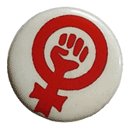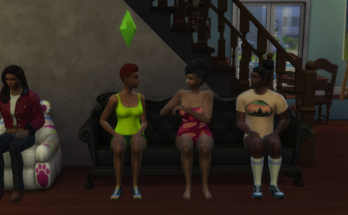By Alejandra Risthon
‘Twas Halloween and the ghosts were out,
And everywhere they’d go, they shout,
And though I covered my eyes I knew,
They’d go away.
But fear’s the only thing I saw,
And three days later ’twas clear to all,
That nothing is as scary as election day.
-Norah Jones, My Dear Country
I’m afraid I’ll sound overly cynical to my classmates (not at all to my IVAW peers), so I’ll just jump right in and say it: I’m not wildly enthusiastic about Obama’s re-election. Don’t get me wrong, the idea of Mitt Romney with control of our drone program and a presidential “kill list” exerting all of his political power in order to take control of American uteruses if absolutely terrifying. The thing is though, that the thought of President Obama having a presidential “kill list” and control of our massive drone warfare program scares me just as much. Bi-partisan elections keep us on the edge of our seats vying for one candidate to beat the other, but in the long run they keep us from evaluating the very real social and political problems of our country. I feel elections give us a sense of participation, action, and control that is hard to find elsewhere in politics. Yet, I believe this system gives us a new media figurehead, albeit one with expansive power, to direct our anger at. Instead of realizing that any of our systems are broken, we blame whoever is at the top. Elections also frustrate people to the point that they become hardened and apathetic towards both candidates, with all the shallow media coverage helping to fuel the overarching feeling that the whole thing is a farce.
In the end, there are democrats and republicans who do good things. There are democrats and republicans who do bad things. Yet, any politician who enters the American political ring is eventually absorbed into a system of hegemonic corporate control. Capitalism started it, Citizens United formalized it, and Eisenhower warned us about it. While American for-profit militarism dominates the economic landscape, the electoral landscape is void of critical discussion about it. While the mainstream media fails to cover stories about U.S. depleted uranium munitions and the increases in infant mortality that have resulted from their use in Iraq and Afghanistan, we have recently witnessed a flurry of news coverage about whether or not women’s bodies have mechanisms to avoid getting pregnant when forcibly penetrated and whether or not there is such a thing as a “legitimate rape.” The propaganda is so out of control that I feel as though I inhabit a different reality than the people I know who still follow corporate mainstream media. My class about online spaces has shown me that my intuition might be right. Our media landscape is no longer divisible with our flesh and blood environment; the two have integrated into one space. We face multitudes of screens in our day to day life, even if they are only the screens we choose to spend time on, our children will not know what life was like before there was a video screen on our gasoline pumps.
My class got together and decided to stage a mini-intervention, a small political action before the elections to promote political participation and confront voter apathy. When we discussed the presidential race in class, there was a consensus feeling of futility and apathy among us. We were pushed by our professor to organize an action showcasing how students on our campus felt about their participation in the election. I am the only older student in class, and I was very excited to see what my classmates came up with. We decided to set a table up on campus, make a couple posters, and see what our fellow students were thinking about.
We made two signs, one asking, “Why are you voting?” and another asking, “Why aren’t you voting?” What did we find? That most students did not want to admit that they are not voting unless they have a concrete excuse, such as, “I am not a citizen,” or “My absentee ballot was lost in the mail.” We also learned that most people voted because they’ve been told they’re supposed to. Other than that, the conversation remained fairly shallow, the same way we’ve been primed by the media not to engage too critically with election politics. There were few references to third party candidates or local elections. War was not discussed at all.
At least it was a very safe space that our event was held in. Our venture into campus politics came without any naysayers, and without any physical threats to our bodies. There is lots of room for growth in such a safe environment, and I plan to take advantage of that. I plan on bringing IVAW on campus before the end of the semester. Let’s bring some new viewpoints to this current college generation; they certainly won’t get them on the news. This is one of the great benefits of moving political activism offline and into the streets.
I hope that after the reelection, this population of college students will not put politics in the closet for the next four years. Let’s start working now to build awareness of the and political consequences of our permanent war economy.




